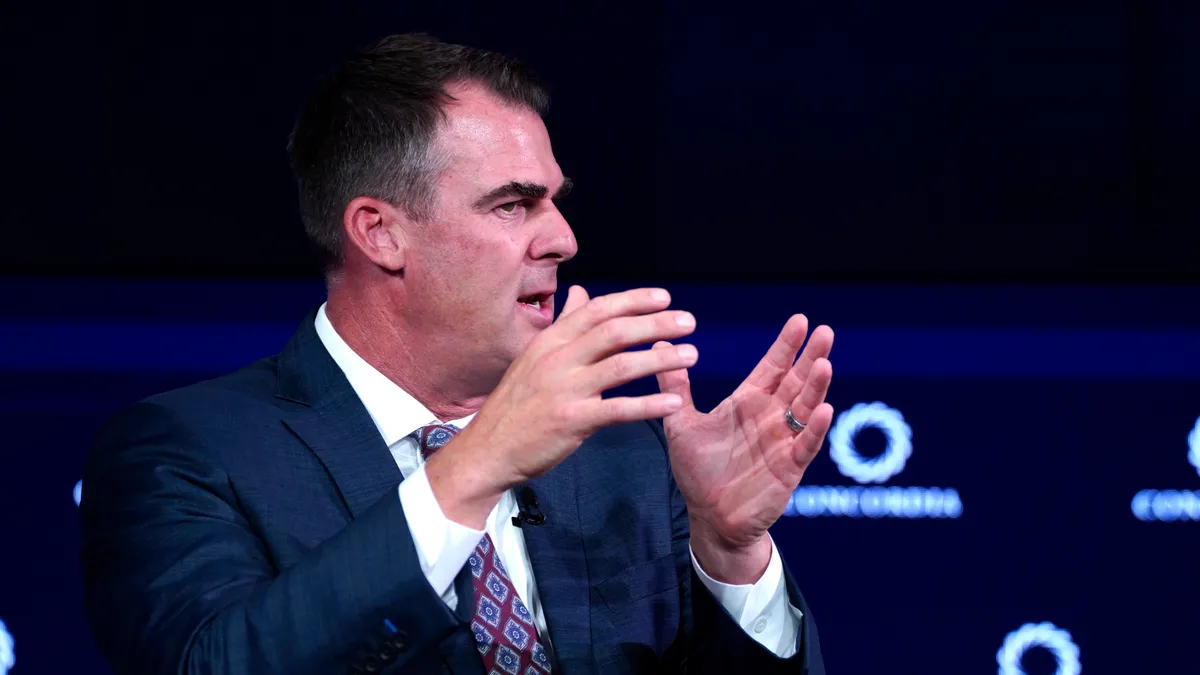Dive Brief:
- Yet another small New England college will close its doors. The 185-year-old private Green Mountain College will shutter at the end of the spring 2019 semester, Vermont Public Radio reported, putting some 400 students in search of a new college and 100 faculty and staff out of work.
- Already, several transfer and teach-out agreements have been announced. Paul Smith's College, in upstate New York, will accept Green Mountain students and help them graduate on time and with financial aid guarantees for the 2019-20 academic year, The Post-Star reported. Both institutions have programs that focus on environmentalism and sustainability.
- Nearby Castleton University, a public institution in Vermont, said it would match tuition and waive application fees for Green Mountain students, according to WCAX, which notes a handful of other colleges with teach-out agreements. Prescott College, an environmentally focused liberal arts college in Arizona with ties to Green Mountain, also announced a teach-out deal.
Dive Insight:
As Green Mountain makes accommodations for students ahead of its closure, two other Vermont colleges are reportedly on the rocks. The Barre Montpelier Times Argus reported that Goddard College and the College of St. Joseph have each been placed on probation by their accreditor, the New England Commission of Higher Education (NECHE), due to financial concerns. Other small colleges, including public institutions, in the state have cut staff or merged.
The College of St. Joseph has until April 1 to show it is financially fit. A college official said the institution is looking into a partnership or joining a consortium to lower costs by sharing resources.
Many of small colleges' financial woes stem from meager endowments that make it difficult to spend heavily on recruiting new students or recover from financial or operational missteps. For example, the College of St. Joseph's difficulties were amplified by a failed attempt at certifying a new program that gutted its $5 million endowment, an official said. Heavy reliance on tuition and enrolling fewer than 1,000 students are among the factors putting colleges at risk of closure, according to a 2016 Parthenon Group report.
A review of more than 75 New England colleges with more than 100 students and less than $100 million in annual expenses found tuition accounted for at least 70% of revenue at 63 of them, The Boston Globe reported. That's compared to Harvard University, which gets around one-quarter of its revenue from tuition.
NECHE President Barbara Brittingham told Inside Higher Ed that more college closings are likely, particularly in the northern parts of New England. Fitch Ratings last month noted higher ed consolidation "may accelerate" in 2019, though the overall rate of closure is below 1%.
Yet the trend has caused at least one state to raise oversight of private colleges. Las week, the Massachusetts Board of Higher Education approved a plan to monitor the health of those institutions using public data, warn them of concerns and require them to create contingency plans for students if their outlook indicates a downward trend. Colleges that don't comply could lose their Title IV funding.
"Financial challenges are impacting liberal arts colleges throughout the country and Green Mountain College is no exception," wrote Green Mountain President Robert Allen in a letter to students. "These financial challenges, the product of major changes in demographics and costs, are the driving factors behind our decision to close at the end of this academic year."









